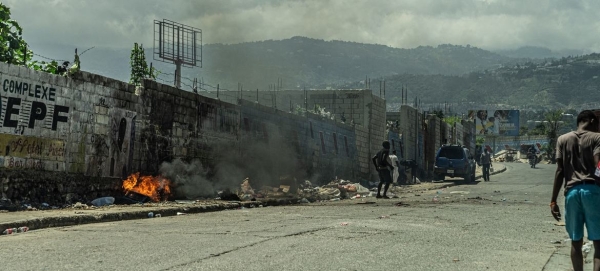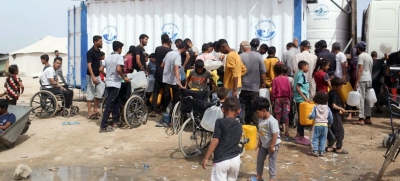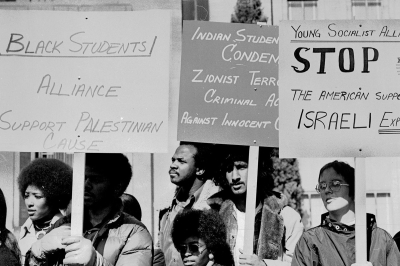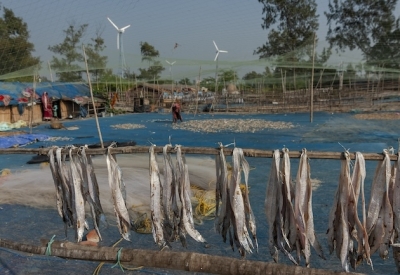The security situation continues to deteriorate in Haiti as gang violence grows, and elections are crucial for the sustainable rule of law, the UN Special Representative in the country, María Isabel Salvador, told the Security Council on Monday.
“Elections are the only path and the only imperative to restore democratic institutions in Haiti. Only democracy and the rule of law can form the basis from which Haiti can progress towards development and growth,” she said.
UNDPPA The envoy, who also heads the UN Office in Haiti, BINUH, underlined the “enormous significance” of the Council’s recent resolution authorizing the deployment of a multinational support mission to assist the national police, and welcomed another on an arms embargo.
The rampant gang violence — mainly affecting the capital, Port-au-Prince — is another shock to Haiti, where nearly half the population, roughly five million people, needs humanitarian aid. In recent years, the Caribbean nation has been hit by a cholera epidemic, earthquakes and cyclones, as well as the assassination of President Jovenel Moïse in July 2021.
Serious crime increasing
Ms. Salvador reported that major crimes are rising sharply and reaching new record highs. Incidents include the broad daylight kidnapping last week of the head of the High Transitional Council – the body tasked with preparing the long-overdue elections – by gang members dressed as police officers.
“Killings, sexual violence, including collective rape and mutilation, continue to be used by gangs every day and in the context of ineffective service support for victims, or a robust justice response,” she said.
Activities by vigilante groups have added further complexity to the security crisis. BINUH has registered the lynching of nearly 400 alleged gang members by the so-called ‘Bwa Kale’ movement between late April and the end of September.
Path to the polls
Meanwhile, Ms. Salvador has continued engagement towards “a path to elections to fully re-establish democratic institutions and the rule of law.” Although inter-Haitian consultations have resumed under the auspices of regional bloc CARICOM, she was concerned that “efforts towards elections are not moving at a desired pace.”
She stressed that re-establishing control by the Haitian National Police is a prerequisite for holding a credible and inclusive vote, and the deployment of the multinational force brings hope that that things will improve.
“The Haitian National Police can only achieve lasting results when public security is restored, and the State resumes its functions, especially in disadvantaged neighbourhoods prone to gang activity,” she said.
Child recruitment and sexual violence
Roughly two million people in Haiti live in areas under the control of armed groups, who are expanding their operations, the head of the UN Children’s Fund (UNICEF) said in her briefing to the Council.
Catherine Russell reported that children are being injured or killed in the crossfire, even on their way to school. Others are being forcibly recruited into gangs or joining them out of sheer desperation, while women and girls are facing extreme levels of gender-based and sexual violence.
Rape ‘now commonplace’
Ms. Russell visited Haiti last June where she met a pregnant 11-year-old at a centre for survivors of sexual violence. Five men had abducted the girl last year while she was walking on a street, and three took turns raping her.
“Several women at the centre spoke of armed men breaking in, raping them – in one case, in front of her children – and then setting their homes on fire. In some areas, such horrific abuses and crimes are now commonplace,” said Ms. Russell.
Food and nutrition crisis
Armed groups have also strangled major routes from the capital to the rest of Haiti, where most of the population resides, destroying livelihoods and restricting access to essential services.
Ms. Russell said this “life-threatening mix of conditions” has caused a food security and nutrition crisis that is deepening, with more than 115,000 children suffering from severe wasting – a 30 per cent increase over last year.
Nearly a quarter of all children in Haiti are chronically malnourished, and the ongoing cholera outbreak is further putting young lives at risk.

Humanitarian response continues
Although the violence is also compromising humanitarian workers on the ground, Ms. Russell said UNICEF and partners continue to deliver in Haiti. Last week they were able to secure the safe release of nearly 60 children held by armed groups occupying a school in Port-au-Prince.
She said the multinational support mission will play a critical role in improving security and urged the force to give special care and attention to the protection of children, women, people with disabilities and other vulnerable groups.
Illicit weapon flows
The gang violence being enabled by “sophisticated firearms” that are being brought into Haiti illegally, Gada Waly, head of the UN Office on Drugs and Crime (UNODC) told the Council.
Demand is linked to criminal groups needing to enforce the lucrative trade in illegal drugs, as the country remains a transit destination primarily for cocaine and cannabis.
“Halting the flow of illicit firearms into Haiti and establishing a robust regulatory framework for firearms are imperative steps for the Haitian authorities to assert control and re-establish normalcy,” she said.
By land and sea
Ms. Wady urged the international community to support Haiti in achieving these aims, in parallel to the deployment of the multinational support mission.
The latest UNODC report has identified four major sea and land routes for illicit flows of firearms and ammunition into Haiti, which are mainly coming from the United States, including via direct shipment in containers to Port-au-Prince.
Weapons are also sent from the US to northern regions and transported overland to coastal cities and onward to docks controlled by gangs or traffickers before eventually landing in the capital.
Another land route is through two border crossings with the Dominican Republic, used mainly for trafficking ammunition. The final route is via Cap-Haitien, a city on the north coast, where smaller quantities of weapons are hidden in the personal items of people crossing the border by car or on foot.






